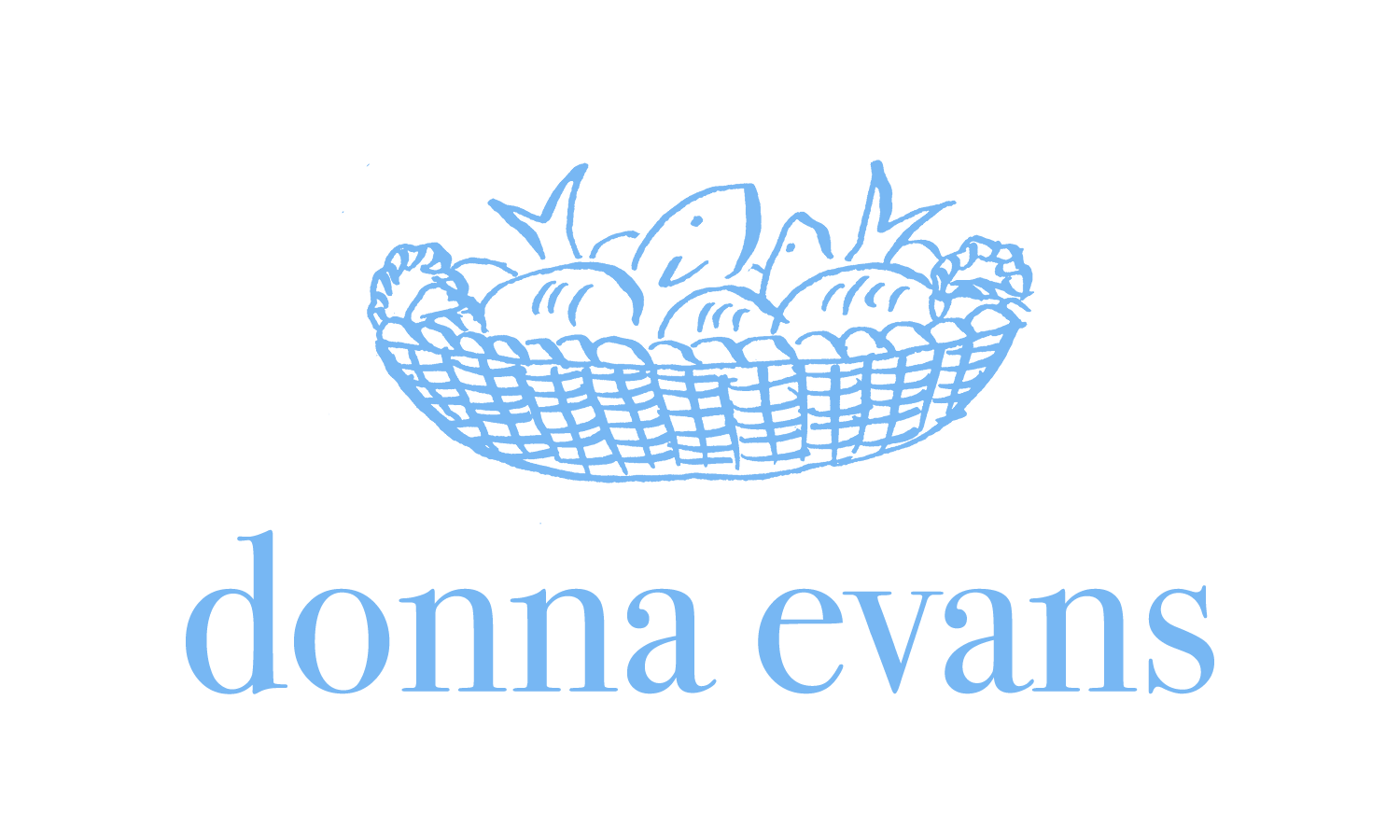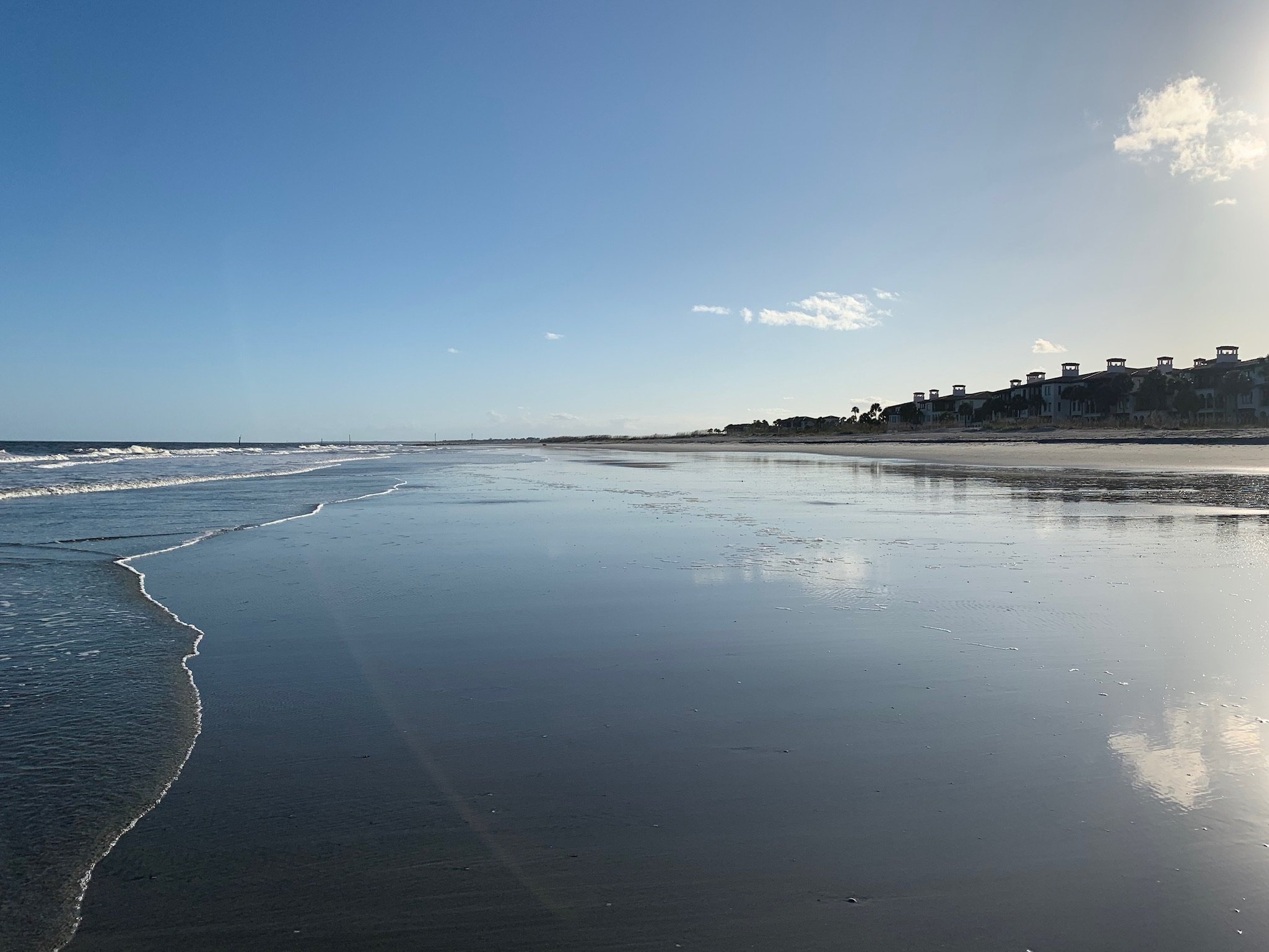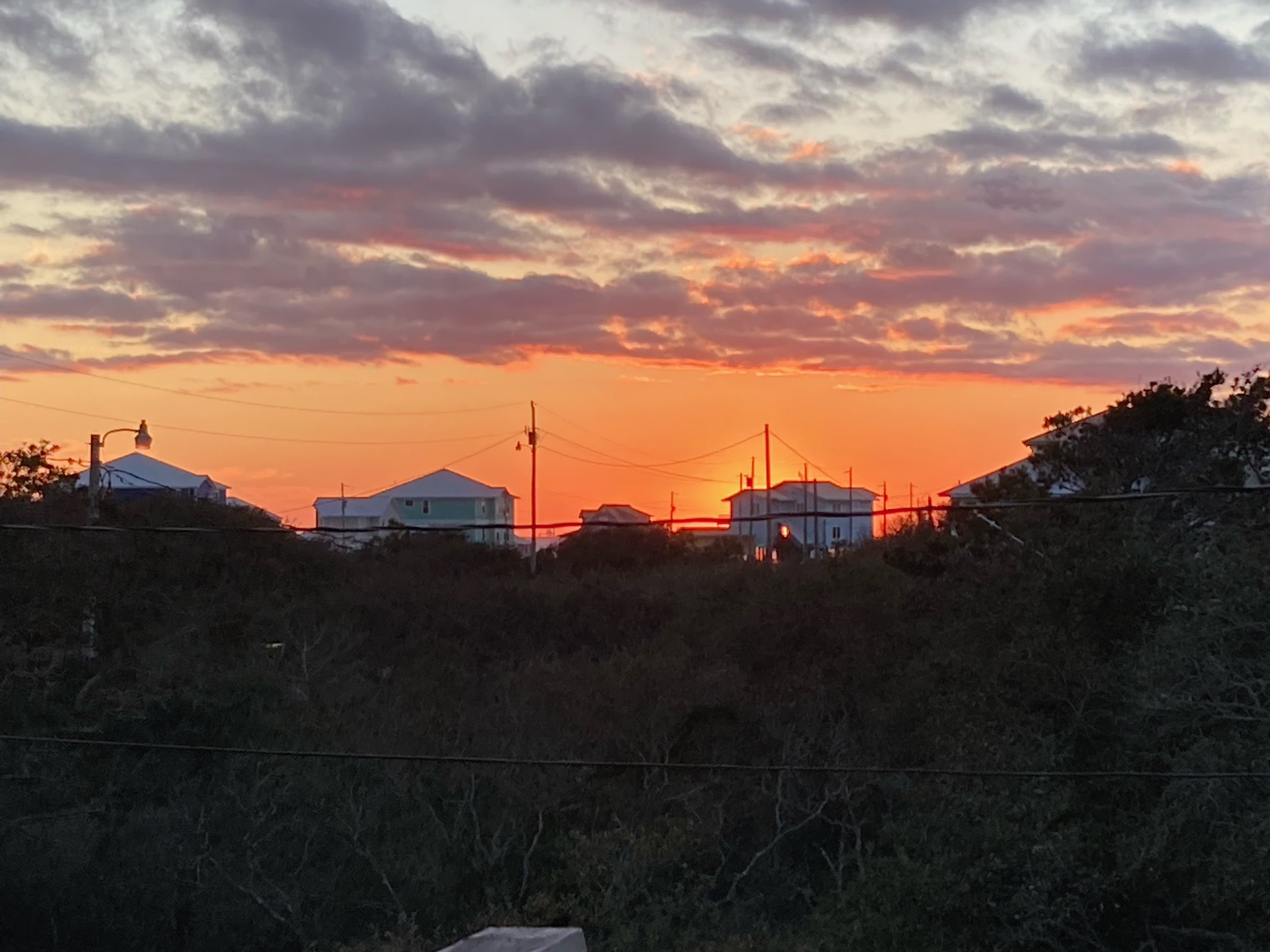Sea Oats and Sunsets
“The heavens declare the glory of God;
the skies proclaim the work of his hands.”
Psalm 19:1 (NIV)
Last week I had a few free days sandwiched in between Vacation Bible School prayer duty and this week’s Nehemiah teaching for a women’s summer Bible study. My husband was out of town helping a friend with a building project, so I headed to the beach for some much-needed rest.
For me a beach trip offers an opportunity for a personal reset as I watch the rising morning sun slowly dispel the night’s darkness or the evening’s fading sunset provide an ever-changing kaleidoscope of colors. Beach sunrises and sunsets are reminders of God’s daily faithfulness. They force my eyes toward heaven and help me take my focus off my problems and myself. The heavens really do declare the glory of God!
Walking along the shoreline, I’m reminded of God’s infinite creativity as I watch snow crabs quickly burying in the sand; pelicans diving for fish before returning to flight; and sea oats gently dancing in the gulf breeze. The constant rhythm of the ocean waves reminds me of God’s words to Job: “(Who) said, ‘This far you may come and no farther; here is where your proud waves halt?’” (Job 38:11) As the waves roll in and out, I am reminded that God is big and I am not.
The sudden afternoon thunderstorm with its flashes of lightening and peeling thunder quickly brings the Psalmist’s words to mind: “The God of glory thunders.” (Psalm 29:3) All of nature combines to remind me of God’s greatness, glory, and power.
Nehemiah is one of my favorite books of the Bible. It is the last historical narrative of the Old Testament and it closes the Old Testament history of Israel. The book was written in approximately 440 BC and records a massive rebuilding effort. Jerusalem’s city walls lay in ruins for 150 years, before Nehemiah, a cupbearer turned contractor and later governor, led a massive rebuilding project that produced a completed wall in just 52 days.
Nehemiah certainly understood and relied on God’s greatness and power. In the first of his twelve prayers recorded in the book, Nehemiah prays and calls on:
YHWH, the family name of God (1:5)
the God of heaven (1:5)
the God of covenant (1:5)
the God of Israel (1:6)
his own personal God. (1:6)
The starting point for all our prayers is a recognition of our own helplessness and a recognition of God as God. The broken Jerusalem walls were certainly a big problem that requires a big project, but Nehemiah serves a big God who faithfully keeps his covenant promises to his people. Because Nehemiah has a big worldview with God as his focus, he confidently and constantly prays. Throughout the project, Nehemiah is desperate and dependent on God as he faces external and internal opposition; open hostility and ridicule; the workers’ fear and discouragement; and his personal physical exhaustion.
I’ve previously taught several Bible studies using the book of Nehemiah and focused on lessons in leadership and building a lasting legacy, but I personally lived two of Nehemiah’s prayers with James Bruce. I can’t begin to count the number of times, I’ve prayed:
“Strengthen my hands” (Nehemiah 6:9) and
“Don’t let all this hardship seem trifling in your eyes”
(otherwise translated as don’t waste our suffering!) (Nehemiah 9:32)
Those two prayers have given me words when I had no words. They sustained me through James Bruce’s life and death. They carried me through my recent breast cancer treatment and I am confident that they will continue to sustain and strengthen me until God calls me home. He is faithful to his promises.
Whatever circumstances we face today, the biblical paradigm for prayer hasn’t changed. Throughout the Bible, those who are desperate for God and dependent on God are delivered by and delighted in God. Prayer is not an opportunity for God to grant us our wishes, but an opportunity to know him better.
“Prayer is continuing a conversation that God has started through his Word and his grace, which eventually becomes a full encounter with him.” (Tim Keller)
The book of Nehemiah ends where it began, with a call for God to remember. 2500 years later God is still remembering Nehemiah and using him to encourage us to pray.






